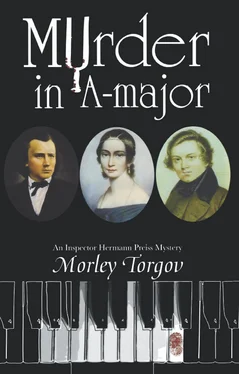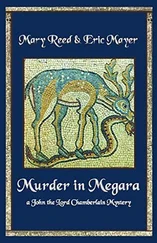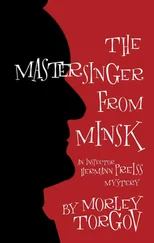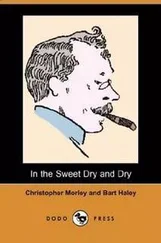Morley Torgov - Murder in A-Major
Здесь есть возможность читать онлайн «Morley Torgov - Murder in A-Major» весь текст электронной книги совершенно бесплатно (целиком полную версию без сокращений). В некоторых случаях можно слушать аудио, скачать через торрент в формате fb2 и присутствует краткое содержание. Жанр: Исторический детектив, на английском языке. Описание произведения, (предисловие) а так же отзывы посетителей доступны на портале библиотеки ЛибКат.
- Название:Murder in A-Major
- Автор:
- Жанр:
- Год:неизвестен
- ISBN:нет данных
- Рейтинг книги:5 / 5. Голосов: 1
-
Избранное:Добавить в избранное
- Отзывы:
-
Ваша оценка:
- 100
- 1
- 2
- 3
- 4
- 5
Murder in A-Major: краткое содержание, описание и аннотация
Предлагаем к чтению аннотацию, описание, краткое содержание или предисловие (зависит от того, что написал сам автор книги «Murder in A-Major»). Если вы не нашли необходимую информацию о книге — напишите в комментариях, мы постараемся отыскать её.
Murder in A-Major — читать онлайн бесплатно полную книгу (весь текст) целиком
Ниже представлен текст книги, разбитый по страницам. Система сохранения места последней прочитанной страницы, позволяет с удобством читать онлайн бесплатно книгу «Murder in A-Major», без необходимости каждый раз заново искать на чём Вы остановились. Поставьте закладку, и сможете в любой момент перейти на страницу, на которой закончили чтение.
Интервал:
Закладка:
Well, that wasn't difficult to give. After all, by my own definition, the “serious” business at hand came down to a single name.
Hupfer… Hupfer …
In the privacy of my room, I repeated aloud the name of Wilhelm Hupfer over and over again while turning the pages of my memory in an attempt to recall precisely the places and times I'd seen the man. I began to make notes:
Hupfer shows up at the house of Dr. Möbius, making his way in just as I am making my way out .
Hupfer shows up again at the Schumanns’ while they are away for a few days of rest at Bad Grünwald and Professor Wieck just happens to be visiting Düsseldorf, and the two of them, Hupfer and Wieck, obviously cannot wait to be rid of me.
When I question Hupfer in his workshop about the possibility of untuning a piano, he is less than forthcoming, and I'm left with the distinct impression that he is lying.
Then there were these nagging questions:
Why does Hupfer spend two hours on the day of the Schumanns’ musicale tuning the older of their grand pianos, but that evening only the newer of the two instruments, the Klems, is played?
Why does he later gossip to Liszt about what he overheard that day at the Schumann house (the bit of conversation between Clara and Brahms), and why does he mention to Liszt that Brahms apparently regulated the Klems himself using his own set of tools prior to the musicale?
My note-taking was interrupted by a soft knock on my door. “Inspector Preiss?” I recognized the voice of Henckel, the concierge. “A message for you, sir.”
Henckel apologized (as he invariably did out of habit) for disturbing me, then handed me a sealed envelope bearing my name and address written in what can only be described as a ferocious scrawl. “Who delivered this?” I asked.
Henckel replied, “A gentleman. Same gentleman that visited you a few nights back. Came by carriage. Simply took off without a word. I am sorry, sir.” Knowing that for some peculiar reason Henckel enjoyed feeling guilty (even when he had no reason to), I did the generous thing; I withheld forgiveness.
The note turned out to have been penned in the same wild handwriting.
“ Preiss, I must see you. Please pardon my past rudeness and offenses. I desperately need your help! ”
It was signed simply “R.S.”
Chapter Twenty-Nine
Impeccably groomed and wearing a simple but fashionable frock, Clara Schumann offered me a civil “Good day” when I arrived at No. 15 Bilkerstrasse the next morning. At her side-not surprisingly-stood Johannes Brahms, who acknowledged me with a curt nod, as though I were on a mission to deliver bread from the local bakery. “My husband awaits you in the study,” Clara said.
I said, somewhat astonished, ‘You're aware, then, that he sent for me?”
“Of course,” she replied. “Did you suppose I would interfere with his wishes at a time like this?”
“A time like this? I don't understand, Madam Schumann, what that means.”
My tone must have been a bit too officious, for Brahms immediately stepped forward. “Clara…that is, Madam Schumann…is suffering greatly under the stress of the Maestro's illness. At least a little sensitivity on your part would be in order, don't you agree? In fact, Inspector, your valuable time might be better spent if you went directly to the study where Dr. Schumann awaits.”
There was something in the air at that moment, something in the manner of Clara Schumann and young Brahms, that smacked of an arrangement on the brink of being carried out, something now unstoppable.
Without bothering to knock, I opened the study door and entered to find Schumann standing before a fire. He was fully clothed, and a thick woollen cape was thrown over his shoulders. Close by stood a pair of brawny male attendants, each wearing an overcoat, despite the heat in the room. Schumann, his voice gravelly, said to the two men, “Leave us, please.”
One of the men spoke up. “Sir, we have strict orders to-”
“To hell with your orders!” Schumann shouted. “I said leave us, or so help me God-”
The men exchanged quick glances. The taller of the two gave me a pleading look. “We have a carriage due here momentarily, Inspector, and a long journey ahead of us,” he explained.
“Go!” Schumann said, almost screaming.
Judging by the way they shrugged, the two attendants were accustomed to such outbursts. Without another word, they retired from the room, Schumann eyeing them suspiciously. “And close the door behind you,” he commanded. Satisfied that we could not be overheard, he said, “They're like parasites. They cling to me day and night. Imagine, Preiss: I, Robert Schumann, am granted privacy only when I use my toilet, and even then I'm not certain! Have you any idea what it's like to be spied on around the clock? It's those bastard doctors. Even Clara and Johannes have been forced to submit to the collective will of these medical monsters.”
“But Dr. Schumann, perhaps they're only seeking to…I mean, given what occurred.”
“Do not interrupt me, Preiss. Let me finish what I have to say. Someone must listen to me. There's not much time, don't you see? They're taking me away. Today. Any moment now.”
“Away? Where to?”
“They call it a hospital, in a town called Endenich, somewhere near Bonn, run by another one of these medicine men, a Dr. Richarz. Never heard of him. But I can guarantee you, it's not a hospital; it's an asylum for the insane. Please, Preiss, I beg you, stop them. Look at me: I am not insane. You know that, don't you? All I want now is to do my work, to be in my home. Don't let them do this to me. You, of all people, have the power to stop them. If they take me away, I know I will never see Düsseldorf again. I will live in a cage, and die in a cage. Help me, Preiss.”
Tears had formed in Schumann's eyes. His lips quivered. His sallow cheeks became wet with his tears. He reached out to me with his right hand, silently urging me to take it, to be his saviour.
I stood staring at his hand as though it were somehow detached from the person to whom it belonged, and I could not for the life of me reach out and take it. And in that instant, what went through my mind was that, for whatever number of years I lived, I would neither forget my refusal, nor forgive myself. Instead of saying to Schumann what he so desperately wanted to hear, I said, “Are you aware, sir, that Georg Adelmann has been murdered?”
I was expecting a show of astonishment followed perhaps by a passionate declaration of innocence. After all, was this not how a typical suspect would react? I was not prepared, then, for Schumann's unhesitating response.
“Good riddance!” Schumann exulted. “Murdered, eh? Well, a fitting end for a blackmailer and a thief, I say. Some may mourn his death, but not I, not for a second.”
“Adelmann was about to publish a biography of you, Maestro. Surely you have some regret?”
“Lies! That's what he was about to publish. Now he'll publish in hell!” Calming down, Schumann went on: “Anyway, Preiss, don't waste time over Georg Adelmann, because once a man's dead, he's dead, and that's all there is to it. I, on the other hand, am very much alive, and I am being killed steadily and mercilessly. And the pity is, I still have much to give. Believe me, music comes closest to the unknowable, and I, Robert Schumann, have seen the unknowable, heard it, even touched it in my way! So you see, don't you? I am not insane. Promise me you will put a stop to this exile. And this time you must keep your promise, not break it as you did before, I mean about retrieving my Beethoven manuscript.”
Читать дальшеИнтервал:
Закладка:
Похожие книги на «Murder in A-Major»
Представляем Вашему вниманию похожие книги на «Murder in A-Major» списком для выбора. Мы отобрали схожую по названию и смыслу литературу в надежде предоставить читателям больше вариантов отыскать новые, интересные, ещё непрочитанные произведения.
Обсуждение, отзывы о книге «Murder in A-Major» и просто собственные мнения читателей. Оставьте ваши комментарии, напишите, что Вы думаете о произведении, его смысле или главных героях. Укажите что конкретно понравилось, а что нет, и почему Вы так считаете.












